You have more in common with Malala than you think
The Gen Z Nobel Peace Prize winner is just like us.
By Freja Love, Junior Producer for The Female Lead
On a Sunday evening in September, speaking with Nicola Coughlan, Malala Yousafzai wasn’t the global activist or the Nobel Peace Prize winner we’ve all read about. She was a 28-year-old woman sharing honest, funny stories about university, friendship, therapy, marriage and Cardi B, laughing at herself and letting us in on the joke.
I expected Malala to be funny. If you’ve read any of her recent interviews or watched her TikToks, you’d know she has a sharp sense of humour. Still, it was a joy to witness her comedic timing live, along with thousands of others in the audience who couldn’t stop laughing at her perfectly delivered one-liners.
What I wasn’t expecting was to leave the Southbank Centre feeling so similar to her. A Nobel laureate, yes, but also a woman who worries, overthinks, loves deeply and just wants good friends. I imagine that’s partly how Malala hopes people will feel after reading her latest book, Finding My Way: reminded that anxieties, mistakes and messy moments are universal.
It struck me how candid she was about not having a normal childhood. Most of us first heard her name in 2012, when she was a 15-year-old schoolgirl shot by the Taliban for speaking out about girls’ education. Two years later, she became the youngest person ever to win the Nobel Peace Prize. While other teenagers were making weekend plans, Malala was travelling the world to speak at summits and meet world leaders. It’s not exactly a relatable teenage experience, but the loneliness she describes, and her longing for connection, absolutely is.
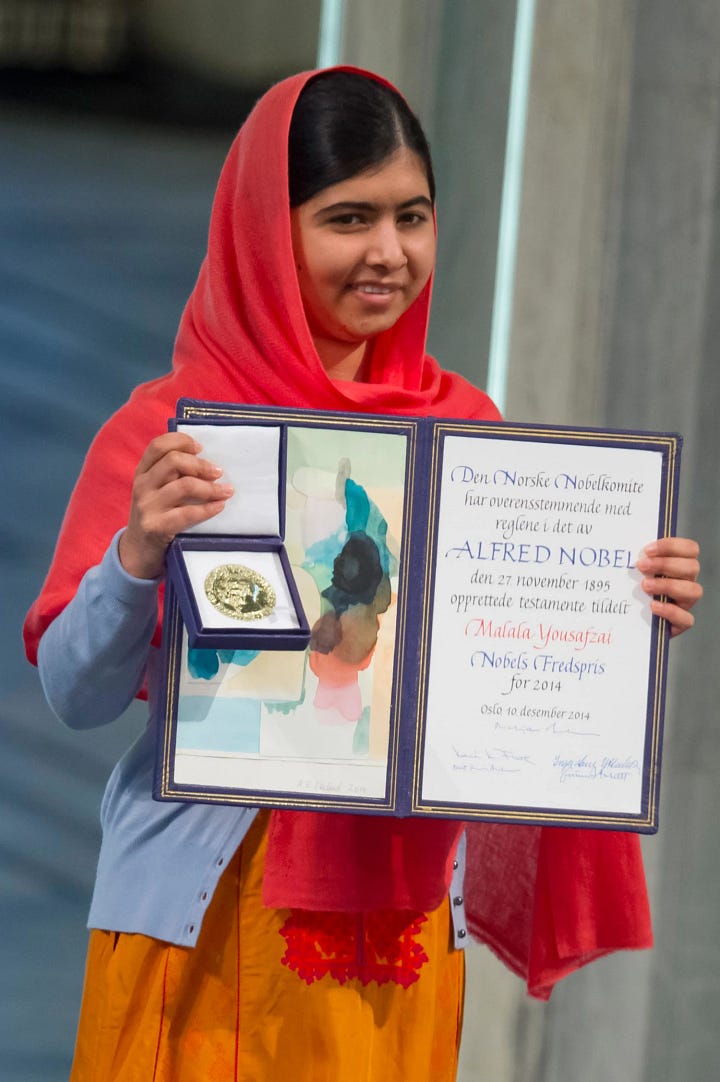
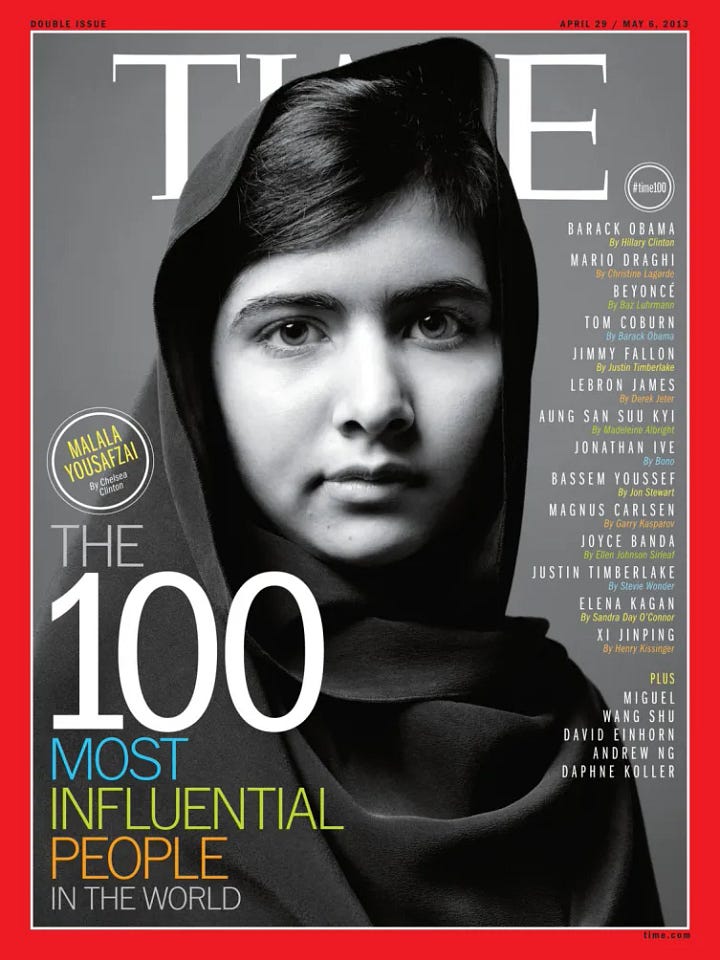
That’s why Malala’s stories about starting university felt so touching. When she arrived at Oxford, she found herself “new to the school environment” and eager to fit in. She admitted, laughing, that she had googled Selena Gomez style for fashion inspiration, and that she joined every society she could “to make friends because I had missed that in high school”.
Her university years are where her story starts to sound particularly familiar. She spoke about mischievous nights at Oxford, climbing onto roofs, crushes on questionable men (“my friends told me absolutely not”), and even tried smoking a bong (albeit for the first and last time.) You might be surprised to hear that Malala also confessed to nearly failing her first-year exams, finishing almost bottom of her class.
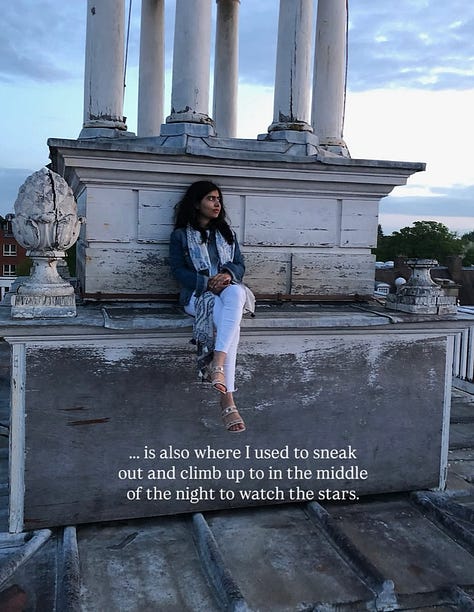
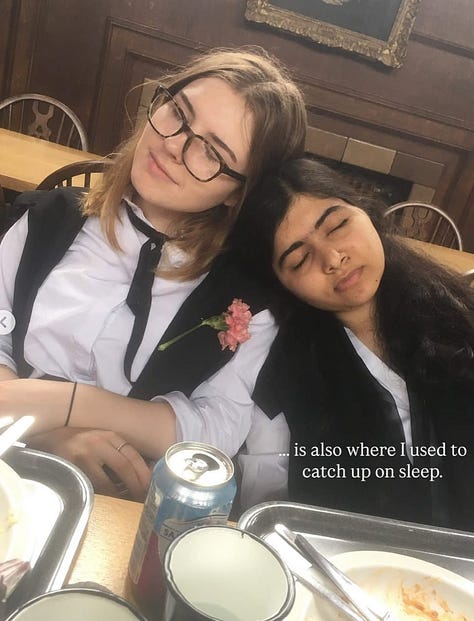
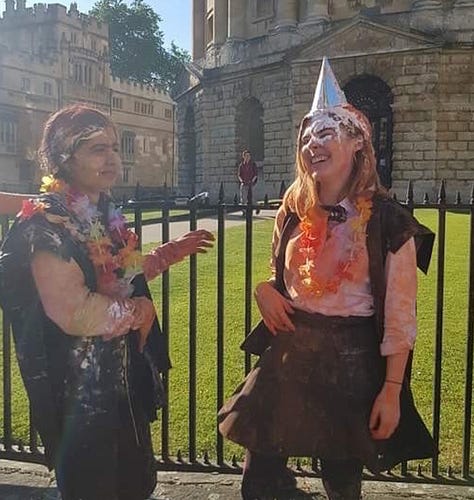
What came across most clearly was her deep affection for the friendships she made there. “I didn’t have to worry about what I was saying around my friends,” she said. “I didn’t have to be political. I could make mistakes for the first time.” A few of those friends were in the audience, smiling bashfully as she reminisced. “Sometimes it felt like I was overdoing it,” she added, “but it was all worth it. Do everything, try all the activities, make the effort. Friends make everything more beautiful.”
Of course, life isn’t always as light-hearted. Malala spoke openly about therapy and how confronting her mental health changed her completely. She admitted that after years of surviving trauma, she found herself struggling with anxiety and dark thoughts. When a friend casually mentioned that she saw a therapist, Malala was surprised, but it encouraged her to try it too.
“In my first session, I told the therapist everything I could think of,” she laughed, “and then said, ‘Okay, now give me the medication’. It was a much longer process than that, of course, but therapy changed my life completely.”
She also spoke about learning to prioritise her wellbeing. “I always thought being an activist meant sacrificing things,” she said. “I felt guilty if I tried to take a break or do something for myself. But I realised I needed to do more for me.” Alongside therapy, Malala credits staying active and her love of weightlifting for helping her manage stress. Whatever people might be struggling with, she added, “There’s always a way out.”
So yes, Malala worries about exams, loves her friends, goes to therapy and lifts weights. Same!
When the conversation turned to love, she was just as refreshingly honest. “As a kid, I said I didn’t want to get married,” she revealed. “I saw that women had to make more compromises. I told all of my college friends not to get married… and then I fell in love.”
She met her now-husband, Asser, in 2018 when he was visiting friends at Oxford, and they bonded over a shared love of cricket. She turned to women writers like Dolly Alderton and bell hooks for perspective, and when she finally confessed her feelings to her dad, she warned him not to tell her mum. “He told her straight away,” she laughed.
Malala took her time before marrying, determined to make her own choices. “This is a reality that women have. We face many different pressures to men,” she said. “But now my husband and I have been married for four years, and it’s all good.”
One story summed her up perfectly. “I told my family I didn’t want to learn to cook. I wanted to be the girl who got her education. But then I realised that I didn’t learn; my brothers didn’t learn, now I’m married and my husband didn’t learn. And I’ve realised it’s really an important skill to have. So I told my husband to start learning.”
Malala has met world leaders to discuss their support - or rather the lack - of girls’ education and women’s rights. But she’s also a fan of Madagascar, Only Fools and Horses and Cardi B. Same again!
Okay, I’m not a Nobel Peace Prize winner who stood up to the Taliban at fifteen (that level of bravery is reserved for the few.) But in life, love, friendship and guilty pleasures, Malala is like us. She’s just a young woman, finding her way.
Some parting words of advice from her: “Enjoy your time learning and making friends, it’s okay to navigate your way through confusions, the most important thing is to be true to yourself and have fun.”


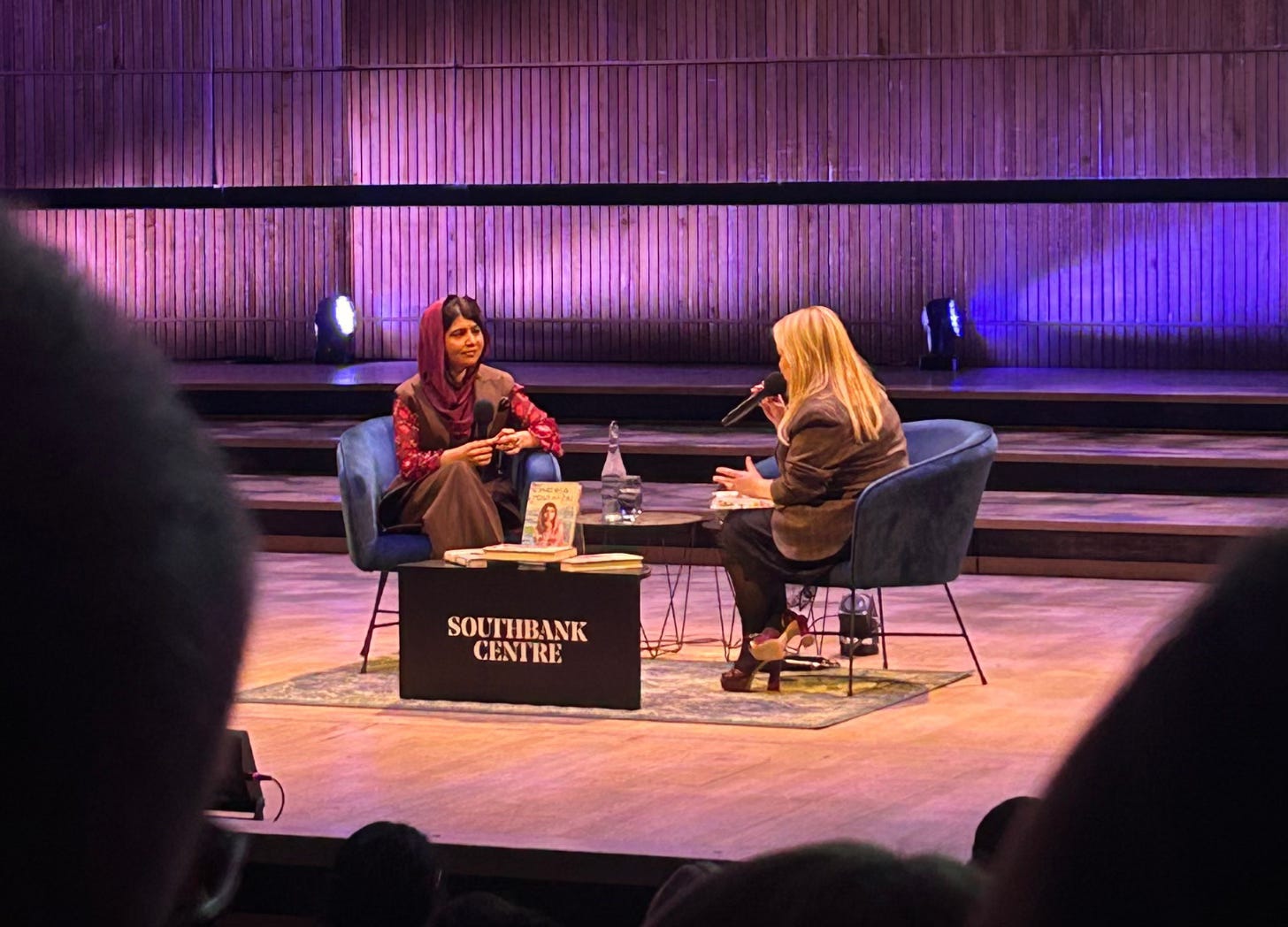
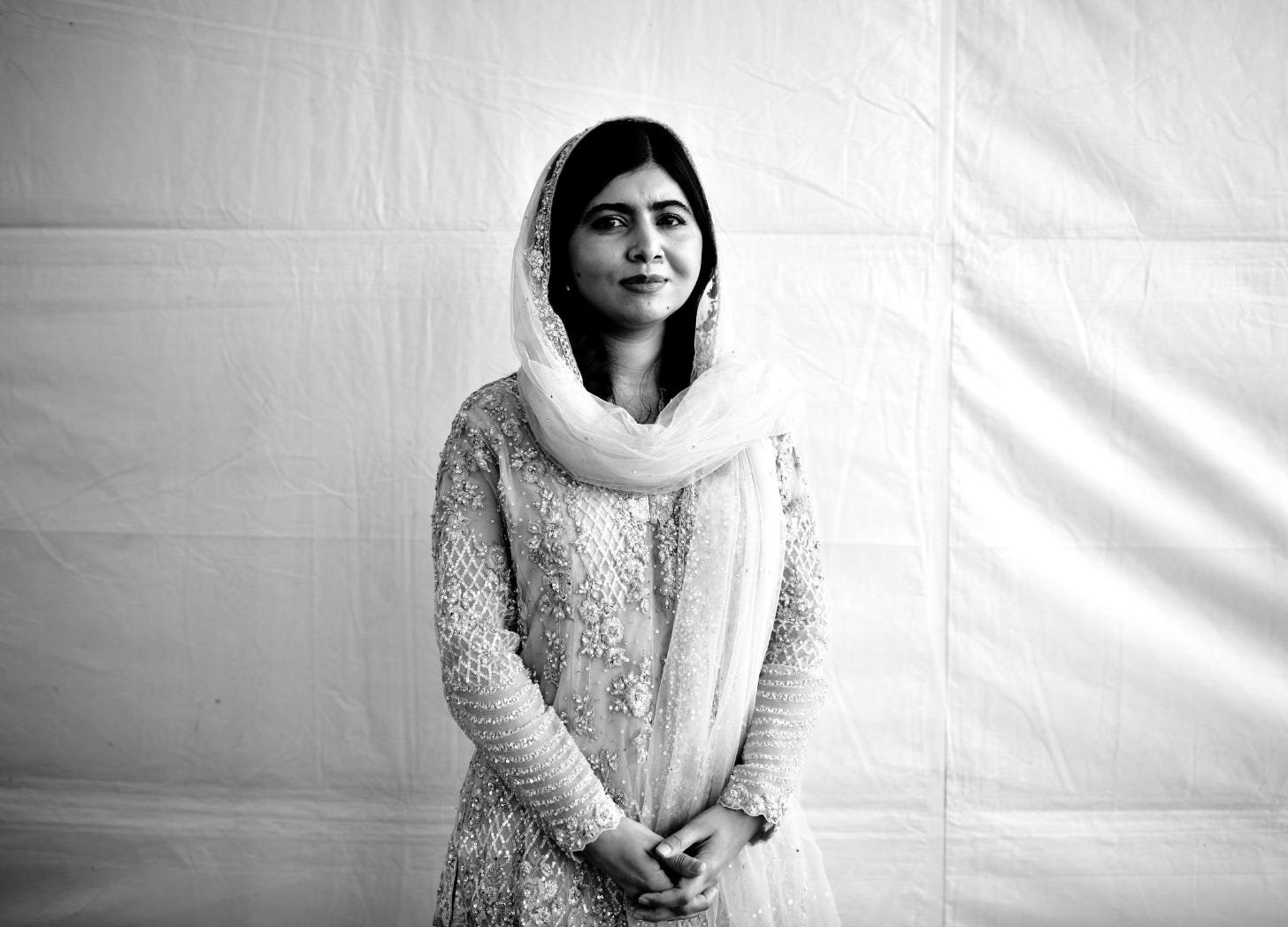
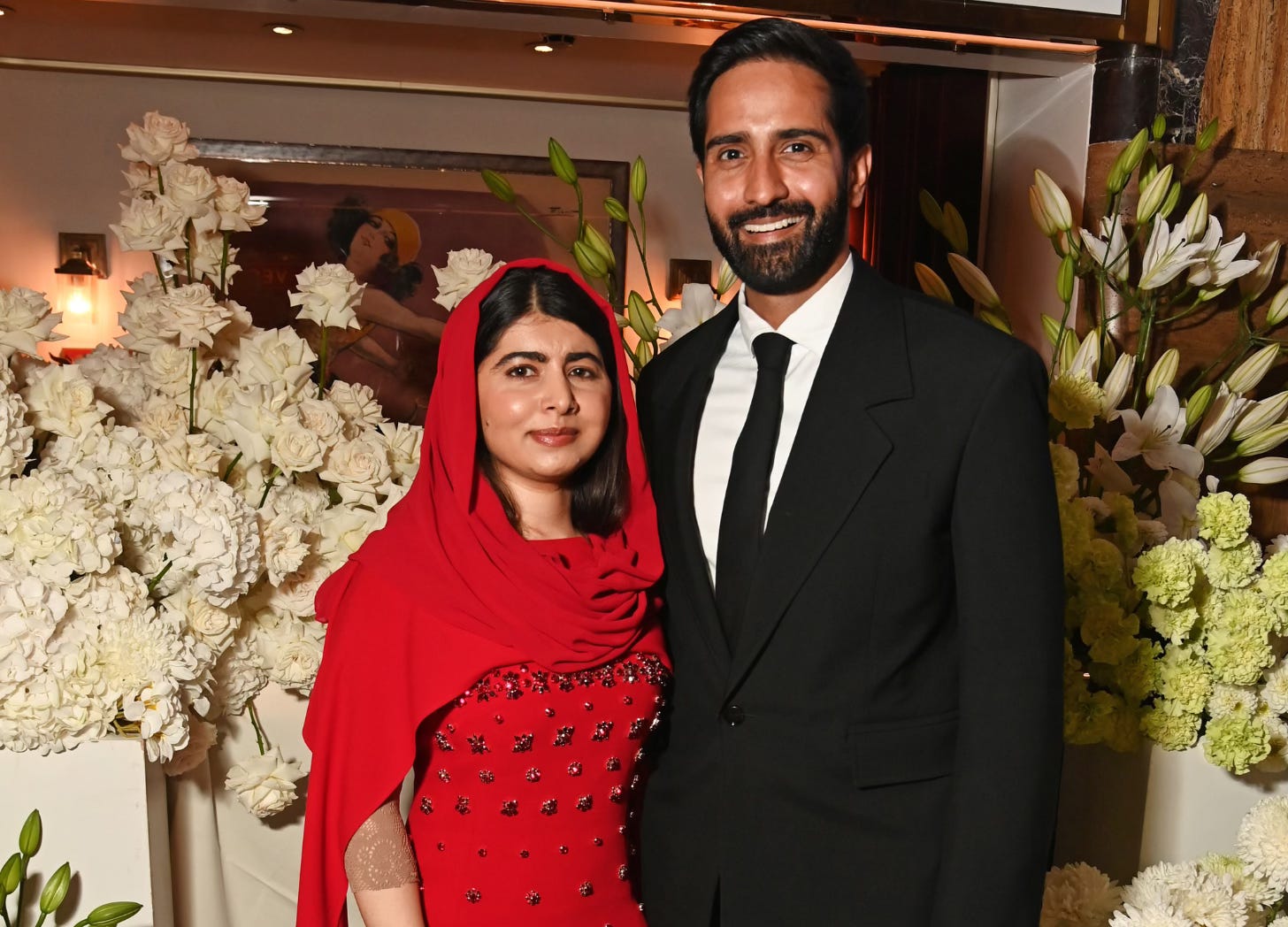

Absolutely loved her book. She is such a genuine and humble woman!
She is just a regular person like everyone else!